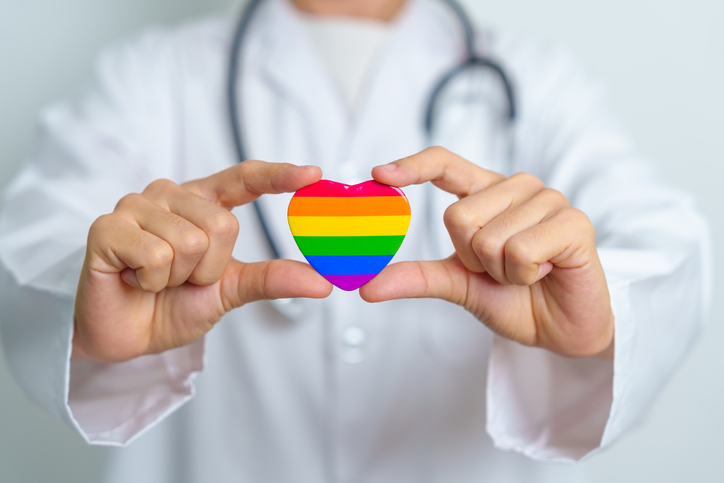
Exploring ways to create an inclusive and safe mental healthcare environment for the lesbian, gay, bisexual, trans and queer (LGBTQ+) community is the focus of a new research project from Flinders University.
Almost three quarters (74.5%) of LGBTQ+ Australians have experienced poor mental health at some time in their life (compared with 41.7% of heterosexual/cisgender people).
It is estimated that 5-16 per cent of Australians are LGBTQ+, meaning that over 200,000 people in South Australia are potentially LGBTQ+ and in need of mental healthcare services due to the negative impacts of discrimination and marginalisation says Professor Damien Riggs.
“We know that LGBTQ+ people are more likely to experience stigma, discrimination and bullying which often leads to poor mental health,” says Professor Riggs.
“As a result, more LGBQT+ people will seek out mental health support services, yet there are relatively few that are tailored to their specific needs and instead they are forced to reply on generalist practitioners.
“In many cases they will refuse generalist medical services because of previous bad experiences and instead suffer in silence.
“We want to lift the barriers that LGBTQ+ communities face when it comes to accessing and engaging with quality mental healthcare services and staff.”
The research project, Developing an Inclusive Mental Healthcare Model of Care for LGBTQ people in South Australia, has received more than $700,000 in funding from Medical Research Future Fund (MRFF) to improve treatment and care for LGBTQ+ people.

“Ensuring the inclusion of LGBTQ+ people within mental health services requires a holistic approach that considers all aspects of service delivery, including intake procedures, the built environment, forms and documentation, service provision and the experiences of all staff and service users.
“Inclusion spans the availability of appropriate bathrooms, the competency of all staff to provide culturally safe care, and that inclusion spans from first point of contact through to referrals out from the service,” Professor Riggs says.
Drawing on a co-design approach and using peer-researchers, the project will utilise side-by-side ethnographic observations and interviews in a repeated-measures qualitative design to evaluate current inclusion approaches within the Southern Area Local Health Network (SALHN) Division of Mental Health Services in South Australia.
“We will use a robust implementation strategy to ensure that evaluation findings are utilised to enhance inclusion for LGBTQ people within all SALHN mental health services.
“Our findings will inform and guide changes to improve the provision of mental healthcare for the LGBTQ+ community.
“We’d like to develop resources that can be used across other local health networks in South Australia, and beyond,” adds Professor Riggs.
The funding comes as part of the largest ever investment in LGBTIQA+ health research by an Australian government, with a $26 million grant round funded through the Medical Research Future Fund.
Commenting on the Government’s announcement, Assistant Minister Kearney says, “we know that there are unacceptable disparities in health outcomes and significant barriers to getting the health care LGBTIQA+ people deserve.”
“I’m proud of how far we’ve come and I’m even prouder to stand beside so many fierce advocates in the LBGTIQA+ community that have fought to get Australia where we are today – but the fight is not over.”
“When the glitter washes away, we have real work to do and the new path to better health must be paved together. I look forward to working with community members, peak bodies and clinical experts to make the health system welcoming, supportive and effective for every Australian.”

